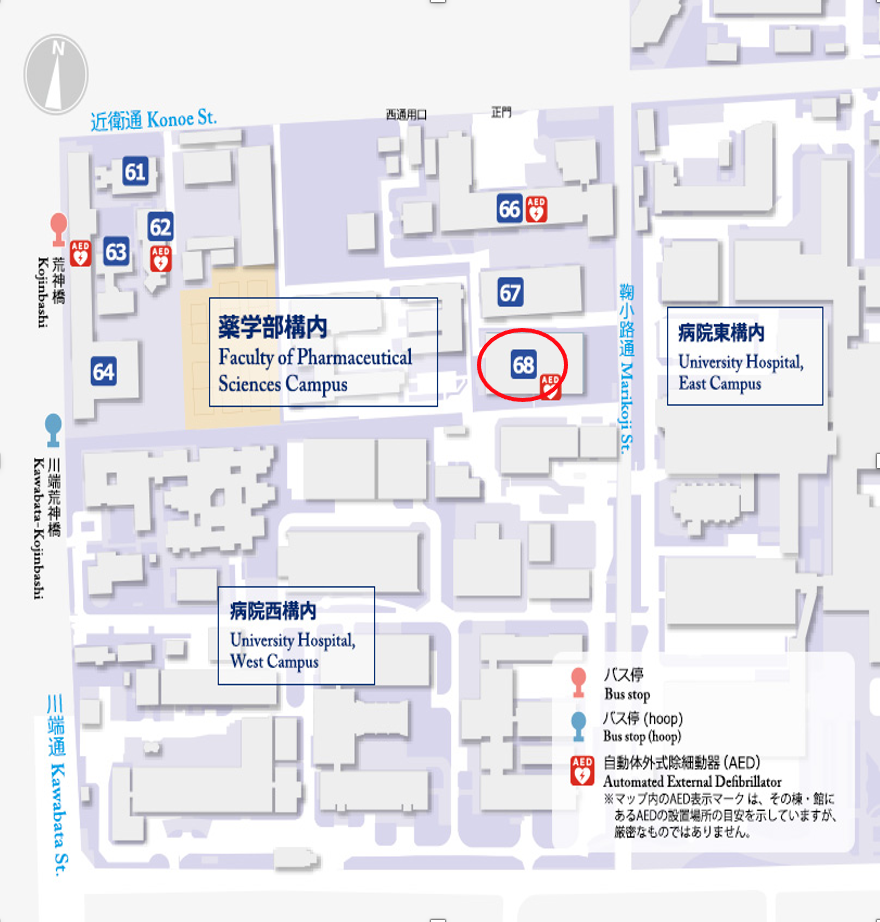Date, Time & Venue
- 11:00-12:00, 7th February 2024
- Venue: Fujita Memorial Hall, Med-Pharm Collaboration Bldg. (Kyoto University Campus Map No. 68; please see below “Venue Access Map”)
- On-site participation, admission free
Speaker

Prof. Adrian Hayday
Professor of Imunology, King’s College London
Senior Group Leader, The Francis Crick Institute
Abstract
Gamma delta T cells are a conserved third lineage of lymphocytes defined by their antigen receptor, the gamma delta T cell receptor (TCR). Mouse models and extensive human data have demonstrated that gamma delta T cells compose an immunosurveillance system that can regulate the incidence and / or the progression of cancer. This may in part reflect the cells’ regulation of inflammation, which is a major predisposing factor for cancer development. These findings have led to the ongoing use of gamma delta T cell-based immunotherapies for both haematological and solid cancers. However, a major unresolved question is the role of the TCR. We have shown that this molecule can actively distinguish cancerous cells, using clonotypic recognition, from healthy cells which are detected by using the TCR as an innate receptor. However, many studies including our own have emphasised the innate nature of gamma delta T cells as illustrated by their activation by cytokines or by NK receptor ligands, seemingly without the need for TCR ligand engagement. To address this paradox, we have investigated the importance of the gamma delta TCR by several approaches ranging from its inducible deletion from mouse T cells to human genetics. The results which will be presented at the lecture contribute to a better basic biological understanding of immunosurveillance and offer strategies for refining T cell-based immunotherapies.
Reference:
Hayday, A and Vantourout, P. [2020] The Innate Biologies of Adaptive Antigen Receptors, Ann Rev Immunol 38: 487-510
Venue Access Map

